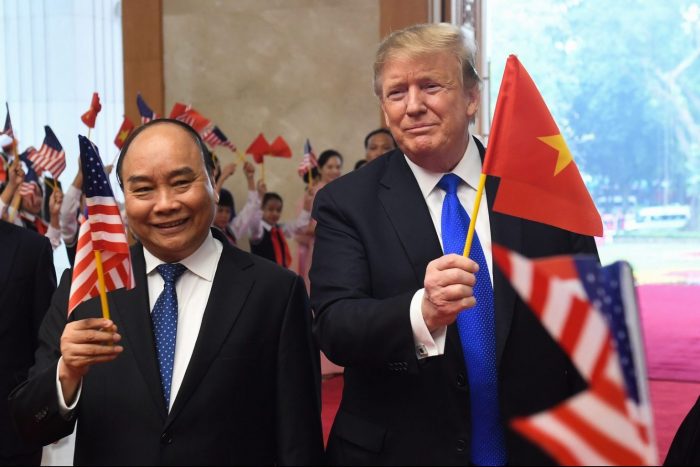(ATF) The US Treasury on Wednesday December 15 declared that Switzerland and Vietnam are currency manipulators. China escaped the manipulator tag, which could give US investors greater confidence to buy high-yielding Chinese assets.
The US Treasury department, in one of its last significant decisions under President Trump’s outgoing Treasury Secretary Steve Mnuchin, condemned Switzerland and Vietnam for foreign exchange intervention during the four quarters ending in June 2020.
China remained free of the currency manipulator tag that was lifted earlier this year, though it was among 10 US trading partners that were placed on a monitoring list for attention to their currency action.
The other countries were: Japan, Korea, Germany, Italy, Singapore, Malaysia, Taiwan, Thailand, and India. The last three countries were placed on the list for the first time.
China only met one of the three main criteria for being judged a currency manipulator, but the US still had advice for how to behave in the future.
“Treasury urged China to improve transparency with respect to the management of its exchange rate, in particular regarding official foreign exchange intervention, and [to] increase public understanding of the relationship between the PBOC and the foreign exchange activities of the state-owned banks, including the use of foreign exchange derivatives and activities in the offshore RMB market,” the department said in a statement.
“The Treasury department has taken a strong step today to safeguard economic growth and opportunity for American workers and businesses,” Mnuchin said in the same statement. “Treasury will follow up on its findings with respect to Vietnam and Switzerland to work toward eliminating practices that create unfair advantages for foreign competitors.”
It is not clear in practice whether this will end up with meaningful sanctions for Vietnam and Switzerland, as both Mnuchin and Trump will leave office on January 20, while the two countries have a year to address US concerns.
More leeway under Yellen?
The incoming Biden administration and his Treasury Secretary nominee Janet Yellen may take a cue from the Obama policy of giving trading partners considerable leeway, even when foreign exchange policies are ruled to have a harmful effect on the US.
Switzerland in particular struggles to manage its currency, which tends to rise sharply during times of global economic stress and can make monetary policy implementation challenging, given that the country has a small domestic bond market.
Vietnam might see a tougher approach, as the Treasury decided that at least part of its currency intervention had been made for the purpose of preventing effective balance of payments adjustments and gaining an unfair competitive advantage in international trade.
The Treasury urged Vietnam to reduce intervention and allow the dong to appreciate, while also increasing transparency over its FX policy and reserve holdings.
In its extended analysis of the policies of major trading partners, the US Treasury noted that China committed to refrain from competitive devaluation as part of the truce in the trade war between the two countries that was agreed in January 2020.
China: Limited transparency
It also noted that China provides limited transparency on certain aspects of its FX management policies including the relationship between the central bank and the FX activities of state-owned banks; and activity in the offshore renminbi market.
The US also urged China to fully report FX derivatives data in line with the International Monetary Fund’s standards for data dissemination template.
China was labelled a currency manipulator by the US last year, as it had been previously in 1992 to 1994.
The manipulator tag does not always have significant real effects, but US investors – and international banks – have learned to be wary of the potential threat from actions by American agencies and regulators.
Today’s reprieve for China may have some effect in encouraging what are becoming significant flows from international investors into Chinese bonds, which offer higher yields than most comparable debt markets.
























